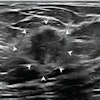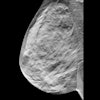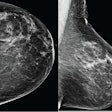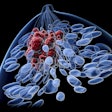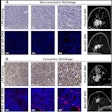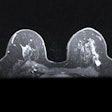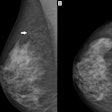Scientists from the University of Manchester in the U.K. have identified a biological mechanism that may explain why women with dense breast tissue are at greater risk of developing breast cancer.
For the study, Dr. Michael Lisanti, PhD; Dr. Federica Sotgia, PhD; and colleagues worked with U.K. research organization Breakthrough Breast Cancer, as well as IBM researchers and academics in the U.S. and Cyprus. Results are published in the February 15 issue of Cell Cycle (Vol. 13:4, pp. 580-599).
The researchers used structural cells called fibroblasts from high-density breast tissue to generate a molecular signature. This signature showed that a cellular communication network called JNK1 was activated to a greater extent in fibroblasts from high-density breast tissue.
The JNK1 network is known to instruct cells to release chemicals that create an inflammatory environment, and inflammation is a driver of tumor formation, according to Lisanti and colleagues. Blocking the JNK1 network could reduce the risk of and potentially prevent breast cancer in women with high-density breast tissue.
The group also found that the molecular signature of the fibroblasts isolated from high-density tissue matched the fibroblasts found in breast tumors. This suggests that drugs that interfere with the JNK1 network could also be used to treat women who already have breast cancer.
